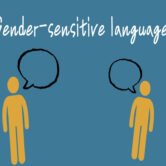
What legal or ethical guidelines must be followed in website content writing in India?
Data Privacy and Consent (DPDP Act)
- Collect personal data only after explicit, informed consent from users.
- Clearly state how data will be stored, processed, and shared on the site.
- Include opt-in mechanisms for forms, cookies, and subscriptions.
- Avoid collecting unnecessary or sensitive personal data unless essential.
- Honor user rights for data access, correction, and deletion as per Indian law.
Copyright and Intellectual Property
- Do not copy text, images, or videos from other websites without permission.
- Attribute third-party sources properly when quoting data, facts, or images.
- Use royalty-free or properly licensed media assets in your content.
- Avoid using brand names or logos of others without authorization.
- Register your original content and designs under applicable IP laws if needed.
Accuracy and Non-Deceptiveness
- Do not make false claims about products, services, or performance metrics.
- Pricing, delivery timelines, and guarantees must be stated transparently.
- Any comparison content must be factual and verifiable.
- Avoid clickbait headlines that mislead readers or misrepresent the article’s purpose.
- Disclose sponsored content or affiliate relationships as per ASCI guidelines.
Accessibility and Inclusivity
- Write content that can be understood by diverse users, including differently-abled readers.
- Avoid offensive, discriminatory, or culturally insensitive language.
- Include alt text for images and use clear, readable fonts and layouts.
- Ensure content complies with basic accessibility standards (WCAG).
- Support multilingual users by providing language toggle options when needed.
Adherence to Sector-Specific Regulations
- Financial content must follow RBI and SEBI guidelines regarding disclosures and disclaimers.
- Healthcare or pharmaceutical content must not make unapproved medical claims.
- Education-related content must comply with UGC, AICTE, or EdTech policy norms.
- E-commerce content must clearly state return policies, tax charges, and seller details.
- Ads and promotions should comply with Indian Consumer Protection Act and IT Rules.





